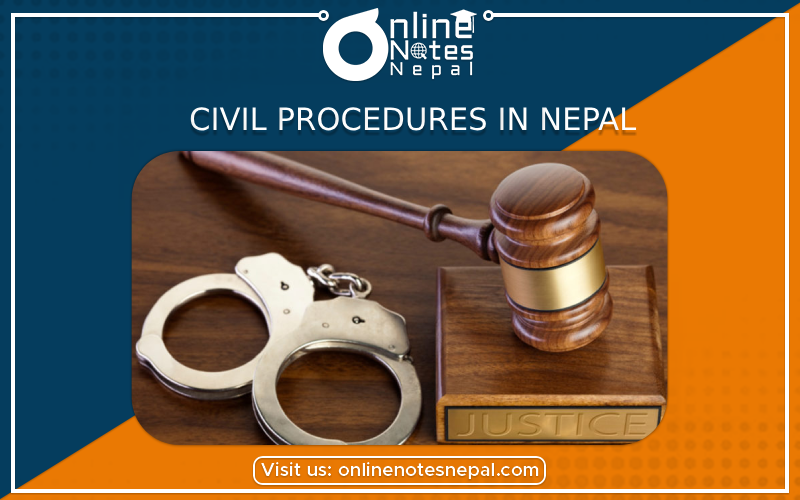Published by: Anu Poudeli
Published date: 02 Aug 2023

The legal processes involved in settling civil disputes and enforcing rights and duties between people, organizations, or the state in Nepal are governed by civil proceedings. The Civil Procedure Code, 2074 (2017 AD), and the rules and regulations issued thereunder, form the foundation of Nepal's civil procedure system. Here are some basic points about Nepali civil procedures:
1.Jurisdiction: The subject matter and monetary worth of the claim determine the jurisdiction of civil courts in Nepal. The courts are organized hierarchically, with the District Court being the lowest level and the Supreme Court being the highest.
2.Pleadings: The plaintiff initiates the civil procedure by filing a plaint, which is a formal written declaration describing the claim and the relief sought. In response to the plaint, the defendant submits a written statement known as a written statement (defence).
3.Interim remedies: During the pendency of the case, the Civil Procedure Code authorizes parties to seek interim remedies to protect their rights or avoid additional injury until the final verdict is issued.
4.Evidence: During the trial, both sides have the opportunity to present their evidence. Oral testimony, records, or any other relevant material can be used as evidence. To reach its judgement, the court considers the evidence offered.
5.Expert Witnesses: Expert witnesses can be appointed by the court or produced by the parties to provide specialized knowledge or opinion on technical issues in the case.
6.Alternative Dispute Resolution (ADR): Mediation and arbitration have gained popularity in Nepal in recent years as more efficient and cost-effective alternatives to traditional court action.
7.Appeals: If a party is dissatisfied with the lower court's decision, they may file an appeal with the higher court within the timeframe specified.
8.Decree Execution: Once a judgment is rendered, the successful party may enforce the decree through a variety of measures, including execution of property, attachment of salary, or other assets.
9.Limitations : Civil claims must be filed within the prescribed limitation period or they will be barred.
10.Legal Representation: In a civil action, the parties have the right to be represented by legal counsel throughout the proceedings.
11.Costs: The court may order the losing party to pay the costs of the proceedings, which include court fees, attorney fees, and any expenses paid during the case.
It is important to note that the material supplied here is a basic overview of civil procedures in Nepal, and there may have been specific intricacies or changes in the legislation since my knowledge cutoff date of September 2021. For more specific and up-to-date information, check the most recent version of the Civil Procedure Code and legal experts or practitioners versed with Nepali law.